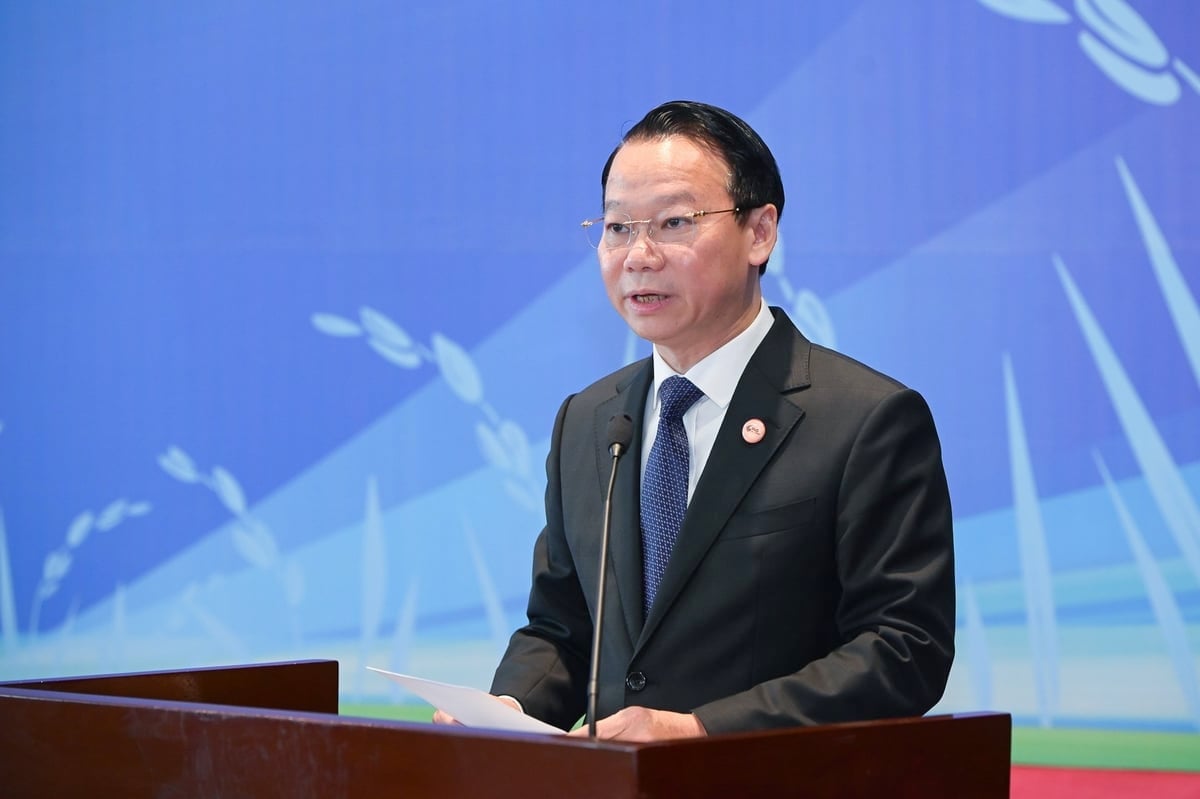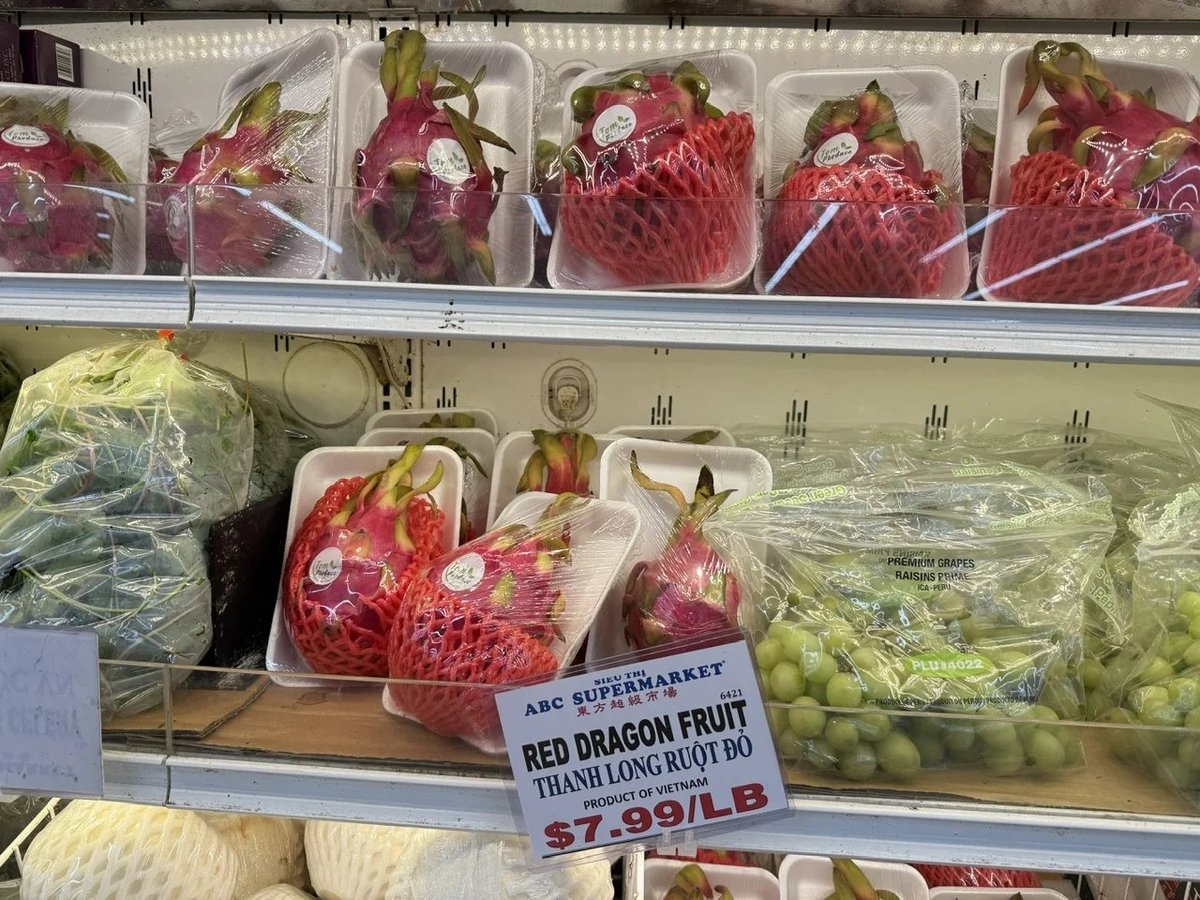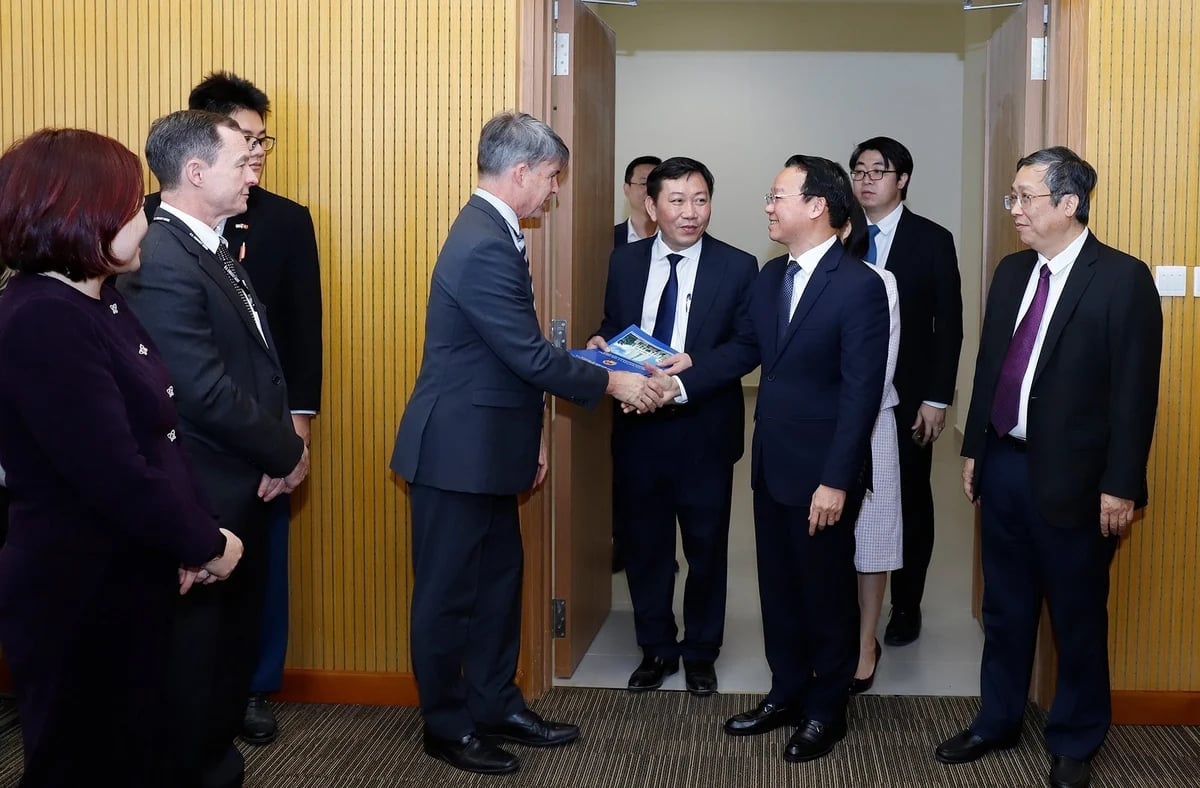(VAN) Minister Do Duc Duy warned that if production is not professionalized and supply chains are not transparent, the U.S. market could become a growth bottleneck.
On May 9, at the Conference on Promoting Trade in Agriculture, Forestry and Fisheries (AFF) between Vietnam and the U.S., Minister of Agriculture and Environment Do Duc Duy delivered a speech emphasizing the urgent need to improve competitiveness, standardize production, and increase transparency in the supply chain. Vietnamese goods are at risk of being subject to a reciprocal tariff of up to 46% from the United States.
According to Minister Do Duc Duy, the U.S. is Vietnam’s largest export market for AFF products. In 2024, the export turnover of agricultural products to this market will reach more than 13.7 billion USD, accounting for 22% of the industry’s total export value. In the first four months of this year alone, this figure continued to increase to 4.34 billion USD, up 10.2% over the same period.

Minister Do Duc Duy speaks at the conference, representing the agricultural and environmental sector of Vietnam. Photo: Tung Dinh.
Key commodities such as wood and wood products, seafood, cashew nuts, pepper, fresh fruit, etc., have all established solid positions and received positive receptions from U.S. consumers. The U.S. continues to be the leading market with a market share of 20.5%, followed by China (17.1%), the EU (13%), and Japan (7.5%).
Increase exports, proactive negotiation
The U.S.’s consideration of imposing high reciprocal tariffs puts considerable pressure on the industry. Minister Do Duc Duy said that the Vietnamese Government has urgently implemented countermeasures, from developing an action plan to participating in a negotiation delegation with the US to organizing a business delegation to the US next June to increase trade and demonstrate goodwill to balance the trade balance.
“So far, nearly 40 businesses have registered to participate, with a total expected value of imported raw materials of about 2 billion USD, not including raw wood,” Minister Do Duc Duy informed.
At the conference, Minister Do Duc Duy pointed out a fact: Vietnam’s internal management system is still lacking transparency and is fragmented, and does not meet international standards on labor, environment, and traceability. This is one of the main reasons Vietnamese goods are easily subject to investigation and taxation.

Vietnamese red-fleshed dragon fruit is on sale at a supermarket in the U.S. Photo: PN.
“We cannot just rely on tax incentives or temporary advantages. If we do not change, the U.S. market will no longer be an advantage but could become a growth bottleneck,” Minister Do Duc Duy warned.
Government accompanies and businesses are at the center
The Minister called on the business community to improve competitiveness and standardize production processes more proactively. Specifically, investing in deep processing technology, cold logistics, quality control systems, and strengthening sustainable links with farmers and cooperatives along the value chain is necessary.
In addition, actively update new U.S. market regulations and be ready to respond to trade investigations; diversify export markets, expand the domestic market, and explore signed FTAs; participate in policy criticism; and coordinate with state agencies to remove difficulties, especially in international legal cases.
In addition, efforts are being made to find solutions to increase purchases of agricultural and forestry products from the United States, focusing on goods that are input materials for domestic production, contributing to harmonizing two-way trade between Vietnam and the U.S.

Minister Do Duc Duy received Mr. Brian McFeeters, Senior Vice President and Regional Managing Director of the U.S.-ASEAN Business Council. Photo: Khuong Trung.
Notably, the Ministry of Agriculture and Environment has also issued a Project to promote exports to the United States with the following orientations: transparency of supply chains and raw material areas, application of digital technology in traceability and quality control, building industry brands based on compliance and sustainable development, as well as promoting green transformation programs in the agricultural sector to meet increasingly stringent environmental standards of major markets such as the U.S., EU, and Japan.
Minister Do Duc Duy affirmed: The Vietnamese Government, the Prime Minister, and ministries and branches will continue to provide businesses with specific support regarding institutions, policies, and techniques, especially in difficult times.
The Minister emphasized that the success or failure of Vietnamese agricultural products in maintaining the U.S. market and, more broadly, their global position depends largely on strategic changes and specific actions from the businesses themselves.
Agriculture News | Agri Products Price



